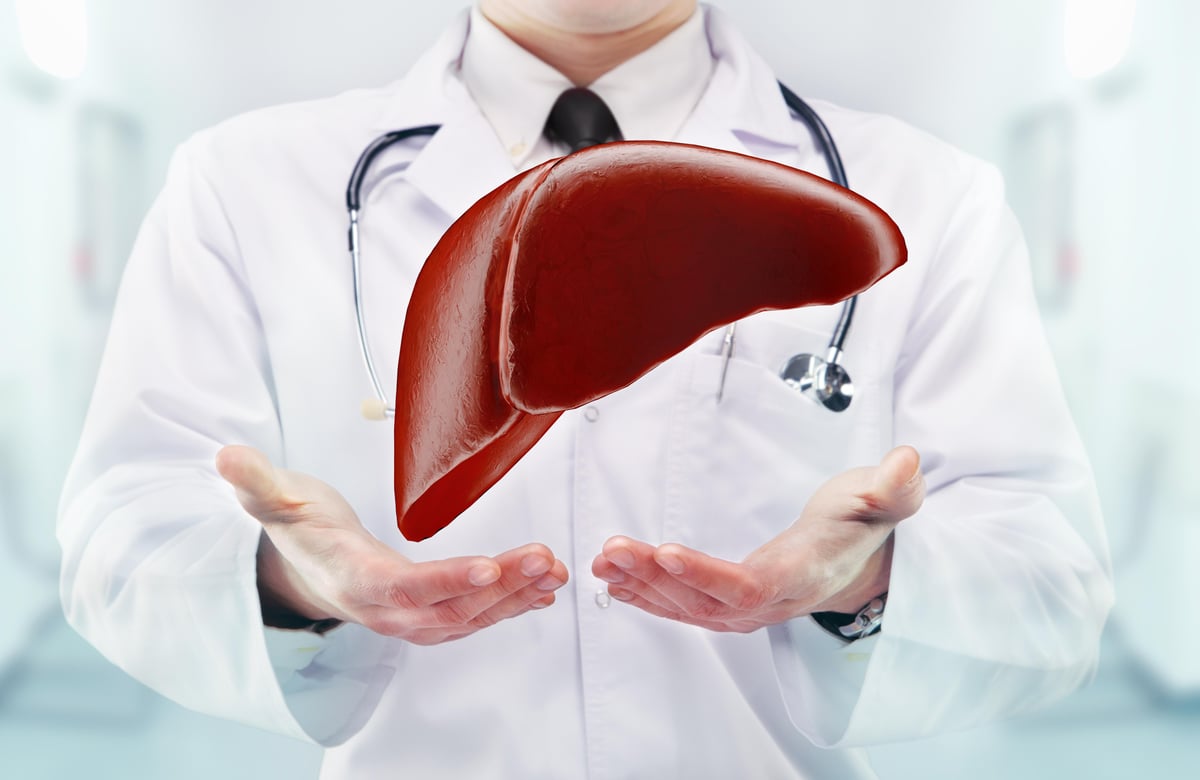Need Accurate Info on Liver Disease? Don’t Head to TikTok

TUESDAY, May 9, 2023 (HealthDay News) -- About 4.5 million adults in the United States have liver disease. If they're looking for information about their condition, they'd be wise to look beyond TikTok, new research suggests.
About 40% of posts about liver disease on the social media platform are false or misleading, pushing claims about fad diets and detox drinks, according to a researcher from the University of Arizona College of Medicine, in Tucson.
“People should always consult their doctor first for guidance on their specific medical condition, but we also know that getting health information and tips from social media is extremely common these days,” said study author Dr. Macklin Loveland, an internal medicine resident.
“When the average person sees a post about liver disease on social media, they may have no idea that the claims are entirely inaccurate,” Loveland said in a news release from the American Gastroenterological Association.
Loveland found more than 2,200 posts on TikTok using the terms “cirrhosis” and “liver disease” between Oct. 1 and Nov. 25, 2022.
He compared the information in the posts against established practice guidelines from the American College of Gastroenterology, American Gastroenterological Association and American Association for the Study of Liver Diseases.
That comparison found that 883 of the posts, nearly 40%, contained misinformation.
Claims about herbal products reversing liver disease were the most common inaccuracies.
Other falsehoods were that eating certain mushrooms or beef liver would heal the liver. Others claimed that doing a parasite cleanse would be effective.
Actual treatment for liver disease can vary, from medication to surgery. Lifestyle changes, such as stopping alcohol use or losing weight, may be part of a medical program that carefully monitors liver function.
In the study, Loveland found that inaccurate posts had far less engagement than accurate posts. These misleading posts got an average of 1,671 “likes” and 140 “shares.” Accurate posts received an average of more than 14,000 “likes” and 364 “shares.”
Posts that involved patients sharing personal information tended to be more accurate.
“Even though inaccurate posts were less popular, they still represent a high volume of misinformation on the platform, leaving people with liver disease susceptible to false claims,” Loveland said. “Given the high mortality associated with liver disease, the impact of spreading inaccurate claims on such a popular social media platform could have serious clinical ramifications.”
These results make a case for better monitoring and regulation of TikTok, Loveland said.
“It’s clear that more needs to be done to flag misinformation on TikTok, including doctors becoming more heavily represented on the platform to combat misinformation with accurate, science-based information,” Loveland said. “In general, TikTok and social media platforms are great sources to disseminate health information. However, we need to put more guardrails in place against false or misleading claims.”
Loveland was scheduled to present the data Tuesday at Digestive Disease Week, in Chicago. Findings presented at medical meetings should be considered preliminary until published in a peer-reviewed journal.
More information
The U.S. National Institute of Diabetes and Digestive and Kidney Diseases has more on liver disease.
SOURCE: American Gastroenterological Association, news release, May 9, 2023
Related Posts
Exercise-Induced Muscle Injury No Worse for Symptomatic Statin Users
MONDAY, April 3, 2023 (HealthDay News) -- Individuals with statin-associated...
Management of Antithrombotics in GI Bleed, Endoscopy Addressed
MONDAY, March 28, 2022 (HealthDay News) -- In a clinical practice guideline...
Las resoluciones de Año Nuevo: ¿Cuál es la mejor forma de plantearlas y cumplirlas?
VIERNES, 30 de diciembre de 2022 (HealthDay News) -- Las resoluciones de Año...
Supreme Court Curbs EPA’s Authority Over Power Plant Emissions
THURSDAY, June 30, 2022 (HealthDay News) -- In a ruling that will curb efforts...
